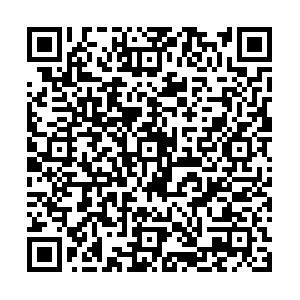| [1] |
BLOCK N. Consciousness,accessibility,and the mesh between psychology and neuroscience [J]. Behavioral and Brain Sciences,2007,30(5-6):481-499. doi: 10.1017/S0140525X07002786
|
| [2] |
PHILLIPS I. The methodological puzzle of phenomenal consciousness [J]. Philosophical Transactions of the Royal Society B:Biological Sciences,2018,373(1755):1-9.
|
| [3] |
KOUIDER S,DEHAENE S,JOBERT A,et al. Cerebral bases of subliminal and supraliminal priming during reading [J]. Cerebral Cortex,2007,17(9):2019-2029. doi: 10.1093/cercor/bhl110
|
| [4] |
BAARS B J. In the Theater of Consciousness,the Workspace of the Mind [M]. New York:Oxford University Press,1997.
|
| [5] |
BLOCK N. Perceptual consciousness overflows cognitive access [J]. Trends in cognitive sciences,2011,15(12):567-575. doi: 10.1016/j.tics.2011.11.001
|
| [6] |
LAMME V A F. Separate neural definitions of visual consciousness and visual attention; a case for phenomenal awareness [J]. Neural Networks,2004,17(5-6):861-872. doi: 10.1016/j.neunet.2004.02.005
|
| [7] |
TSUCHIYA N,WILKE M,FRÄSSLE S,et al. No-report paradigms:extracting the true neural correlates of consciousness [J]. Trends in Cognitive Sciences,2015,19(12):757-770. doi: 10.1016/j.tics.2015.10.002
|
| [8] |
CHRISTOF K. The Quest for Consciousness:A Neurobiological Approach (1st ed.)[M]. Colorado:Roberts and Company Publishers,2004.
|
| [9] |
CHALMERS D J. What is a neural correlate of consciousness [J]. Neural Correlates of Consciousness:Empirical and Conceptual Questions,2000:17-39.
|
| [10] |
LOGOTHETIS N K. Single units and conscious vision [J]. Philosophical Transactions of the Royal Society of London. Series B:Biological Sciences,1998,353(1377):1801-1818.
|
| [11] |
NACCACHE L. Why and how access consciousness can account for phenomenal consciousness [J]. Philosophical Transactions of the Royal Society B:Biological Sciences,http://dx.doi.org/10.1098/rstb.2017.0357.
|
| [12] |
STAZICKER J. Partial report is the wrong paradigm [J]. Philosophical Transactions of the Royal Society B:Biological Sciences,http://dx.doi.org/10.1098/rstb.2017.0350.
|
| [13] |
FRÄSSLE S,SOMMER J,JANSEN A,et al. Binocular rivalry:frontal activity relates to introspection and action but not to perception [J]. Journal of Neuroscience,2014,34(5):1738-1747. doi: 10.1523/JNEUROSCI.4403-13.2014
|
| [14] |
OVERGAARD M & FAZEKAS P. Can no-report paradigms extract true correlates of consciousness? [J]. Trends in Cognitive Sciences,2016,20(4):241-242. doi: 10.1016/j.tics.2016.01.004
|
| [15] |
FINK S B. A deeper look at the “neural correlate of consciousness” [J]. Frontiers in Psychology,2016,7(1044):1-13.
|
| [16] |
SHEA N. Methodological encounters with the phenomenal kind [J]. Philosophy and Phenomenological Research,2012,84(2):307-344. doi: 10.1111/j.1933-1592.2010.00483.x
|
| [17] |
俸军. 康德关于概念的重新界定[J]. 北京科技大学学报(社会科学版),2020,36(6):103-112. doi: 10.3969/j.issn.1008-2689.2020.06.015
|
| [18] |
BAYNE T & SHEA N. Consciousness,concepts and natural kinds [J]. Philosophical Topics,2020,48(1):65-84. doi: 10.5840/philtopics20204814
|
| [19] |
DEHAENE S & CHANGEUX J P. Neural mechanisms for access to consciousness [C]// GAZZANIGA M. The Cognitive Neurosciences III. Cambridge MA:MIT Press,2004:1145-1158.
|
| [20] |
O’REGAN J K. Missing:Empirical theories of phenomenal consciousness [J]. Cognitive Neuroscience,2021,12(2):82-83. doi: 10.1080/17588928.2020.1838472
|
| [21] |
TIMMERMANS B & CLEEREMANS A. How can we measure awareness? An overview of current methods[C]// OVERGAARD M. Behavioural methods in consciousness research. Oxford: Oxford University Press,2015:21-46.
|

 点击查看大图
点击查看大图



 下载:
下载:
